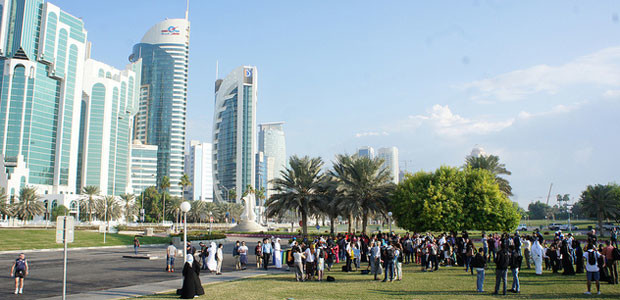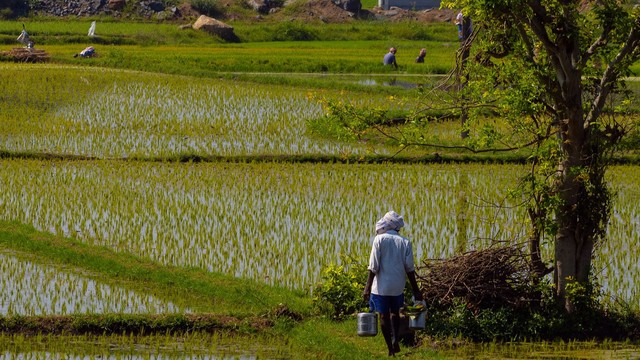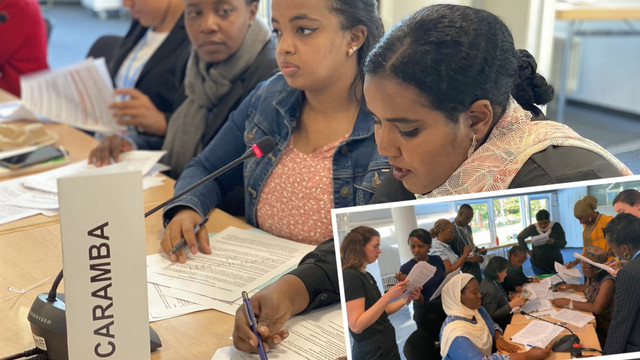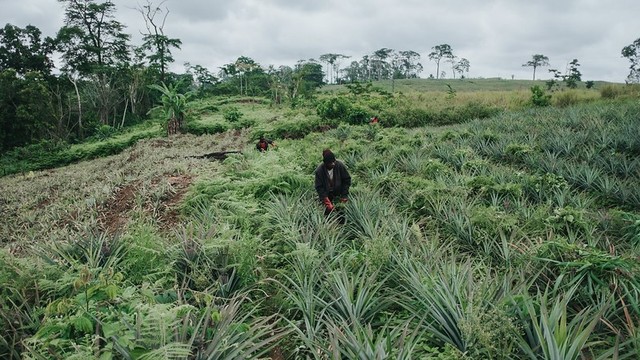COP18 Q&A: Latest from the Doha climate change conference
What is happening at the climate negotiations in Doha and what might the developments mean for countries most vulnerable to the impacts of climate change? We spoke with Saleemul Huq, senior fellow with IIED's Climate Change research group, for his analysis on recent developments.

Q: Lord Nicholas Stern has said developing countries must make the majority of the cuts in greenhouse gas emissions and warns progress has been “recklessly slow”. A new report he has co-authored says that even if emissions in developed countries were cut, this wouldn’t be enough, as the emissions from developing countries are now so high. But developing countries have often said that developed countries should make the greatest carbon cuts, as they have been emitting greenhouse gases longer as they industrialised sooner. What is your reaction to the report?
I think the report has painted a correct picture and it is accepted by all countries, including the developing countries, that everyone is going to have to take action. Many of them have signed up to very ambitious goals for decarbonising their economies as they go forward. The question in the framework convention is one of equity – who does how much? The famous phrase with the framework convention is “common but differentiated responsibilities”. Everybody has common responsibilities to act but some countries, particularly the richer countries, have a greater responsibility to act.
I’m pretty sure this will be resolved in the upcoming talks and the new protocol coming out in 2015 and everyone is working towards that, but the level of ambition needs to be ramped up quite considerably and everyone accepts that right now.
Q: Would you say your comments chime with those of the least developed country negotiators you work with?
Very much so. The least developed countries, along with the other vulnerable groups, the Alliance of small island states and the Africa group, have been pushing for some time for a much greater ambition in the negotiations from all countries to reduce their emissions. Many least developed countries have also put forward mitigation plans, even though their emissions don’t count for very much. They are doing it because it’s the right thing to do not because somebody is telling them to do it.
Q: The Kyoto Protocol, drawn up in 1997, committed all rich countries to cut carbon emissions. It is the only global treaty on climate change that we have and emissions targets are to be replaced when it runs out at the end of 2012. How are talks on a second commitment period of the Kyoto Protocol, which will run from 2013 to 2020, progressing?
Because the 1st commitment period ends on the 31st December 2012, all we need to do in Doha is to keep it alive, and it looks like that will happen. The European Union has committed to a second commitment period and it looks like that will be agreed, so it doesn’t look like this will be a barrier any more.
Q: A new issue for developing countries emerging from the climate talks is whether rich countries should compensate vulnerable communities for the "loss and damage" caused by extreme weather events linked to climate change. While previously talks debated how poorer countries could adapt to the impacts of climate change, now they are becoming more focussed on compensation. The push for the climate damage insurance programme is led by the Alliance of Small Island States, the Least Developed Countries group and the African Group of Nations. You are quoted in the Guardian saying: “It is an important new concept. It could decide whether there is a Doha agreement." How are things progressing on this issue at the talks? Are developed countries resisting the idea of compensation?
Loss and damage is a new element at Doha. It opens up a new element in the sense that there is recognition that adaptation and mitigation, the two major strategies we’ve adopted over the past 20 years, are both not going to be sufficient to prevent loss and damage in certain parts of the world.
There’s a new agenda item on a work programme on loss and damage. There is a lot of agreement on what needs to be done in terms of exploring this issue, with insurance, for example, as a means for dealing with losses and damages.
The demand from the least developed countries is for setting up an international mechanism on loss and damage in Doha. This still hasn’t been agreed by the Annex 1 or rich countries. Right now it is being discussed at the ministerial level – the minister from South Africa has been charged with coming up with compromise text by tomorrow.
As of 48 hours ago things looked quite bad, but things seem to have improved slightly. I’m hopeful they will come up with some sort of agreement by the end of Doha.
Q: The world has already spent $30bn as part of ‘Fast Start Finance’ to help poorer countries adapt to climate change. But according to new research published by IIED so far, only US$23.6 billion of the US$30 billion promised has been committed. And only 20% of the fast start finance has been allocated to projects that will help poor nations adapt to a changing climate. How are discussions proceeding on climate adaptation funds for poorer developing countries?
On finance there are two issues: one is looking at the finance that has already been promised in the past: the fast track finance package for 3 years for $30 billion from the rich countries to developing countries for combatting climate change which ends in 2012 and then there’s also a promise of $100 billion from 2020 onwards.
Two issues are being discussed in Doha, with regard to delivery of the finance. On the previous $30 billion, which the developed countries claim they have actually over-delivered (claiming they have delivered over $33 billion), it’s very difficult to know where that finance went and how. We need to come up with procedures for monitoring, reporting and verification of these finance figures. We need to agree some format so that money can be tracked effectively – it hasn’t been tracked previously.
The second issue is how much money will be available between 2013 and 2020 because there are no real pledges on the table yet, although a few countries have made some pledges. The demand from developing countries is for $60 billion over the next 3 years up to 2015. The developed countries are reluctant to agree to commit to a global figure, but they are promising to provide funding at similar levels as they have done in the past.
This is being negotiated at the ministerial level and there is hope that an agreement will be reached in Doha by the end of Friday.
Q: The Least Developed country group represents 48 of the poorest countries, which are recognised in the Framework convention as particularly vulnerable to climate change. What successes can the group claim?
The group became particularly effective under the leadership of Pa Ousman Jarju from the Gambia. In fact the agreement that was reached in Durban about 48 hours after the convention was supposed to end was because the EU and least developed countries stepped up and helped break the impasse, so they’re a significant group within the negotiations.
Q: The group has just elected a new chair – what’s the significance of the election?
It’s the first time that the Least Developed country group has elected a new chair before the tenure of the existing chair expired. Yesterday we had a formal handing over ceremony from the Gambia to Mr Prakash Mathema from the Ministry of Environment of Nepal. It’s the first time we have done this formal transfer with a good transition, as usually this happens last minute.
Interview by Suzanne Fisher-Murray, the web content manager at IIED.



